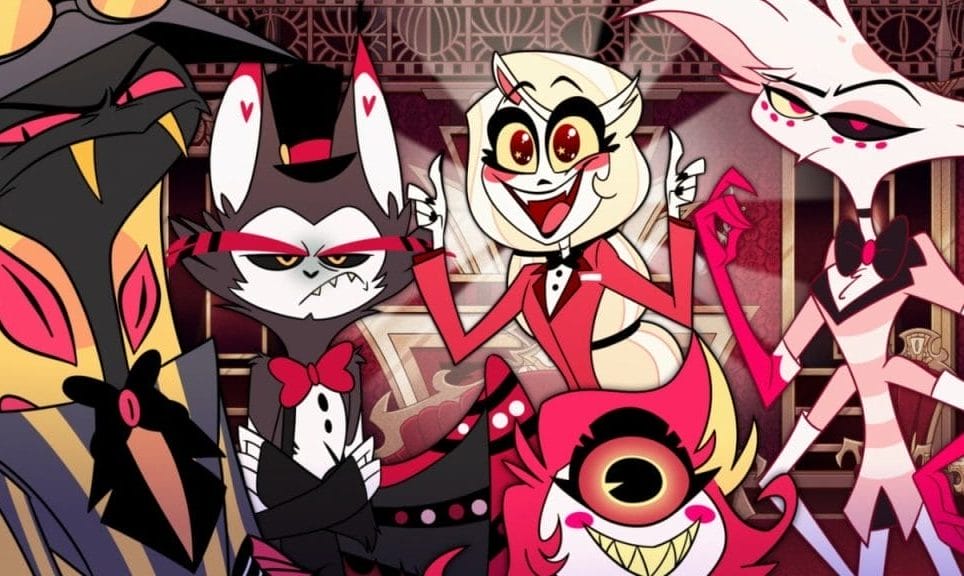In the last ten years, we have seen a considerable rise in the popularity of adult animation as a storytelling medium. Though shows like The Simpsons and Bob’s Burgers are household comedy staples, we have seen a shift in the tone of cartoons. The popularity of adult comedies like Bojack Horseman and Tuca and Bertie have proven animation to be a powerful vehicle for addressing meaningful issues. In fact, they can even teach us a little more about what it means to be human. Hazbin Hotel is here to teach us about the nature of redemption.
How it All Began
Hazbin Hotel first sprang to life as a YouTube pilot in 2019, animated entirely by freelance animators around the world and funded through a Patreon subscription. Becoming an overnight sensation, A24 Entertainment picked up the show before it was released on Amazon Prime.
Hell of an Optimist
The comedy-musical revolves around Charlotte, “Charlie”, Morningstar, the daughter of Lucifer, who establishes a rehabilitation center in hopes of redeeming sinners so that they can enter heaven. This is motivated not simply by redemption but survival, the alternative being yearly “exterminations” by Heaven’s angels to deal with overpopulation. It is this tableau of sinners Charlie assembles that serve as our main cast, and who show us the humanity that remains in Hell.
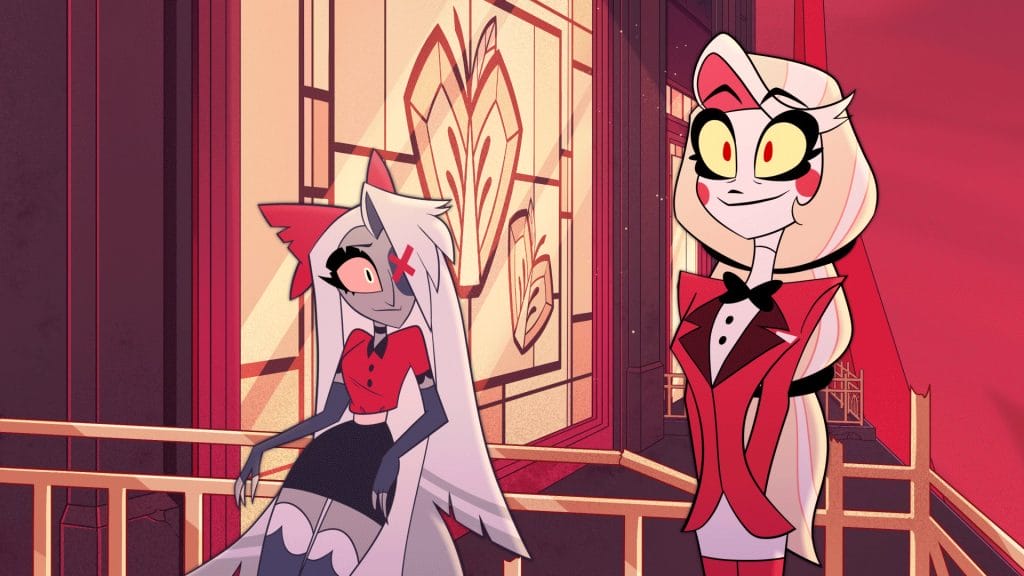
Charlie herself is not the most nuanced character. She is perky and chatty, a relentless optimist whose need to do good verges on the naive. However, there is still much about her to be intrigued. Unlike much of the other cast, Charlie was born in Hell. She has been raised in an environment founded on suffering and has seen only the worst people have to offer.
And yet Charlie is convinced of the fundamental good at the core of every person. She is vehement that no one is beyond saving, even when their life is already over. Though her people are murderers, cannibals and worse, she is sure that redemption is possible. Though Heaven has routinely wiped out her people, she is sure that they will listen to her proposal.
At times this seems almost frustratingly naïve, however it is also profoundly admirable. It would not be fair to say that she does not know evil. Evil is all that she has seen. However every day she chooses to see the good. Good is a choice she makes, one which inspires the sinners in her care to do the same.
“Masquerade”: The Road to Redemption
One such sinner is Angel Dust, a character whose background and treatment has been highly controversial. Angel Dust is an adult film actor and an addict, as well as the hotel’s first real guest. He is crass, violent, and almost constantly cracking provocative jokes. His antics even verge into borderline harassment in his interactions with the hotel bartender Husk.
However, there is another side to Angel. A contentious but powerful scene reveals his abusive relationship with his pimp, Valentino. There is much that could be said about this, but our focus is on what this tells us about Angel’s coping mechanisms.
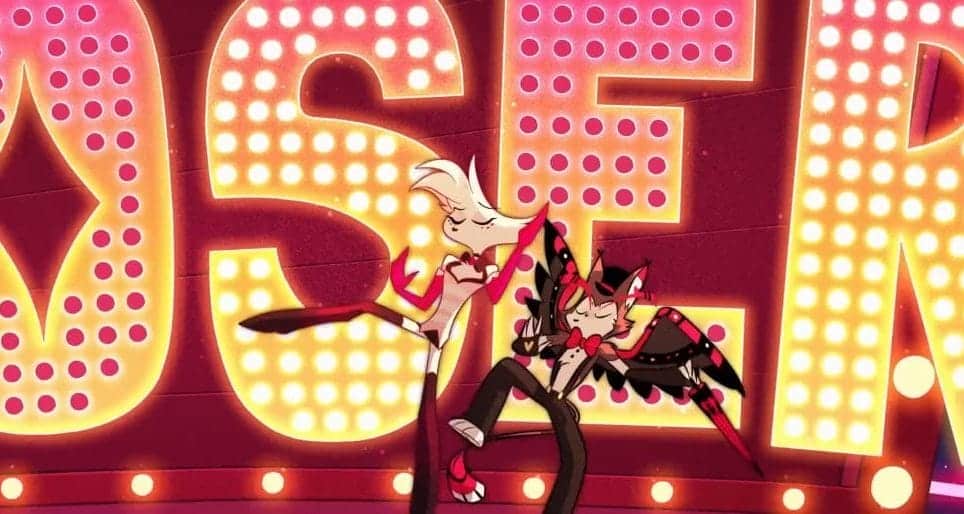
In light of his physical, emotional and sexual abuse, Angel’s hypersexuality and addiction are painfully realistic. To cope with his inescapable environment, he does not lean away from that lifestyle. Rather, he leans into it. In sexualizing himself, Angel is able to retain some control over his situation. By performing as “Angel Dust,” he can disassociate from his trauma as though he was another person.
However, this coping mechanism only allows him to survive, not heal. Angel can no longer comprehend himself when he is not being objectified, hence his unreciprocated flirtations with Husk. His substance abuse puts him in increasingly dangerous scenarios. This, he reveals, is partly the point. Angel hopes that if he ends up damaged enough, then he will no longer be desirable.
Finding Friends in Unlikely Places
This is where Husk comes in, and a surprising and heartwarming friendship blossoms. In a witty, expletive-ridden duet, Husk and Angel bond over their mutually terrible ordeals. Husk reassures him that he doesn’t need to perform and that no matter how broken, who he really is is worth being seen.
For once, Angel is not seen only for his attractiveness but is encouraged to embrace the “ugly” parts of himself. Because, at the end of the day, they make him just like everyone else. This is where Angel’s healing begins.
Sins of the Father and Healing Family
Even the devil himself has hope for healing. Differing distinctly from a suave Tom Ellis, Hazbin’s Lucifer is a zany dad who just wants his daughter to call him back. A dreamer cast out of Heaven for his lack of conformance, Lucifer bears a resemblance to a washed-up artist. Instead of being a ruthless tyrant gleefully punishing his subjects, Lucifer is ashamed of his people.
He isolates himself from his domain and focuses on his inventions, which will never see the light of day. He has boundless creativity and nowhere and no will to channel it. This leads him to neglect his duties, both to the realm and to his daughter.
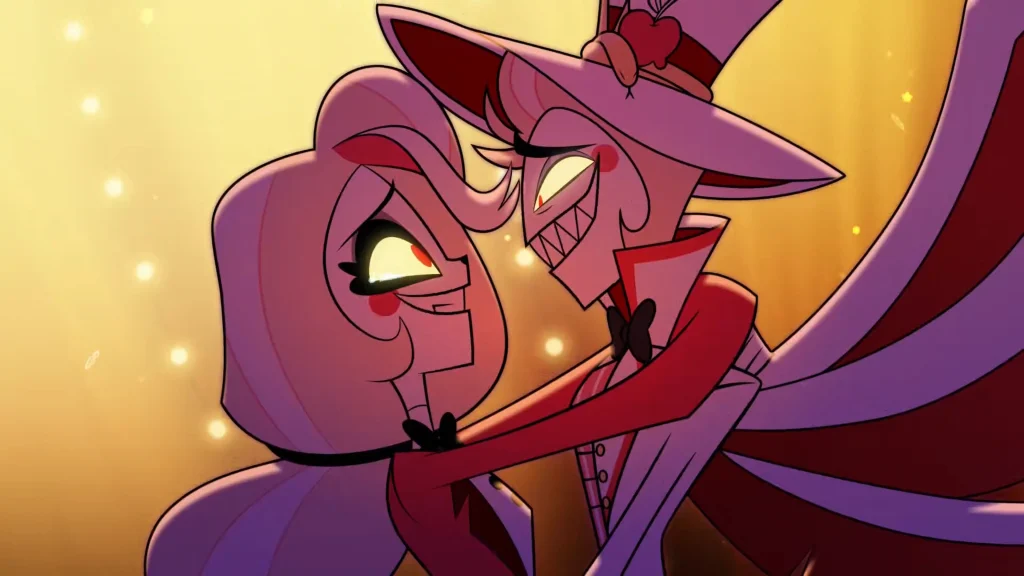
However, this does not mean he does not care. In fact, he craves connection and makes every attempt to mend his fraught relationship with Charlie. But, like Angel, this requires a change of perspective and a display of vulnerability. Lucifer’s fear of Heaven’s wrath and of letting hope into his life again has.
By choosing to see Charlie’s point of view and trusting her choices, Lucifer can mend their bond. In allowing her to see the fear behind his playful facade, his daughter can understand and connect with him. It is a compassionate portrayal of the dilemmas many parents face and of healing in problematic family dynamics.
Devil in Disguise
The show’s core message can also be found in its villains: the angels. The angels view the actions of humanity to be final. Goodness is an inherent quality, and improvement after death is out of the question. They do not believe a damned soul can be redeemed. What’s done is done, hell, as it were, “is forever.”
Heaven’s hypocrisy is made apparent through their cruelty and the entertainment they find in the annual exterminations. However, it also reinforces the true goodness the Hazbin Hotel is creating and the redemption of its residents. The fact of the matter is, they do not know if Hell is forever. The sinners in the hotel do not know if it is possible to enter heaven, and by the show’s end, it seems that it may not even be allowed.
The Show Goes On
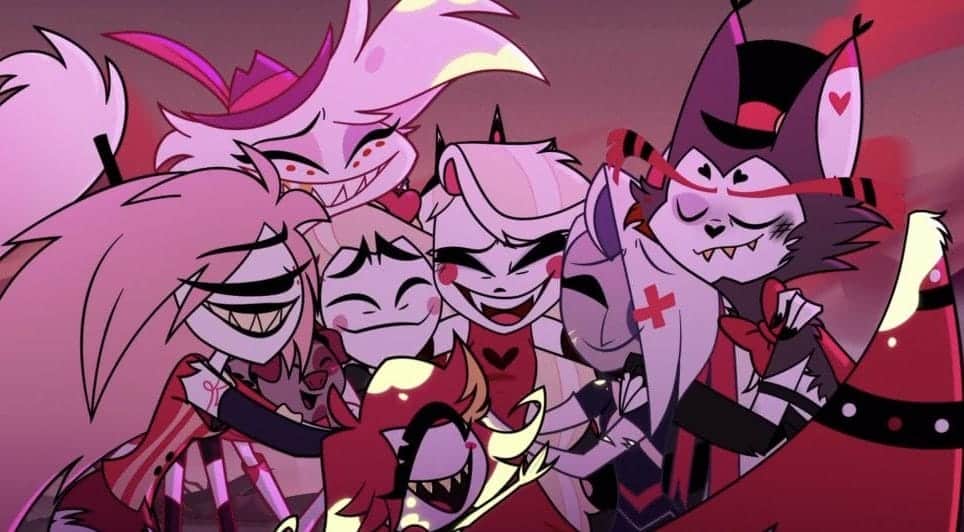
With the hotel wrecked and Charlie’s hopes dashed, Lucifer and her companions rouse her with a stirring performance. Most pivotally Lucifer sings that “the stage is wrecked, the crowd is gone, but…the show it must go on“.
This poignantly summarises the ethical lesson at the season’s core. Without any sign of Heaven being on their side, without believing salvation is possible, our cast has been improving. They have made real connections. They have changed and grown, remedying their mistakes. All of this is done without promise, or even real hope of reward.
This is true goodness, true redemption. Striving to improve even in the darkest of places. Even when no higher power is watching. Doing good for the sake of good, the friendship you find being reward enough.
Hazbin Hotel, while being a whacky, gruesome comedy, has a heart at its center. It is a powerful treatise on human resilience and has much to teach us about redemption. Progress isn’t linear, evil isn’t inherent, and good is an act of trying, no matter how we stumble. Though the hotel residents may not know if they will check out, checking in is the first step. One worth celebrating.


